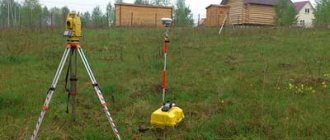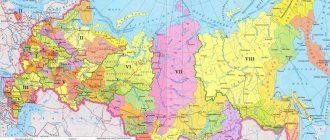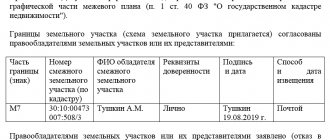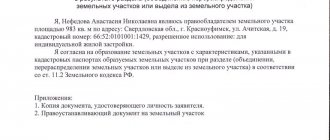The state has provided many benefits for citizens with limited legal capacity.
One of them is the allocation of land. Issued on a first-come, first-served basis.
In the article we will consider questions about the intricacies of obtaining land plots for disabled children.
What does the child’s representative need to do to receive an allotment?
What papers should I collect and prepare the documents correctly?
Is it allowed or not?
Disabled children include persons under 18 years of age. Childhood disability can be established later than adulthood if there are medical grounds and the appropriate timing of the onset of the disease has been established.
By law, a family raising a disabled child has the right to receive a free allotment of land from the state. At the federal and regional levels, programs have been developed to help improve the living conditions of disabled children.
The right to free receipt
is granted to the parents of a child whose capabilities are limited as a result of:
- serious illness;
- defect from birth;
- suffered trauma.
If a family is raising three or more children, including a disabled person, the territory will be allocated free of charge. If a family does not have many children, it is given the right to purchase land without participating in an auction.
The allocation of an allotment is made once - it will not be possible to re-exercise the rights. But if the territory has fallen into disrepair for reasons beyond the control of the person (earthquake, landslides, etc.), the family has the right to apply for the benefit again.
Disabled children are allocated free areas that are not encumbered by the actions of third parties. Parents, guardians or adoptive parents can exercise the right and represent the interests of the child.
Additional Information! If the family did not manage to receive the allotment before the child came of age, he has the right to re-apply.
The right to a land plot for disabled children
This federal program has a certain power. It is aimed at respecting the property rights of socially vulnerable people or disabled children. The regional administration provides plots to citizens with children with disabilities and gives the right to subsidies that comply with local acts and orders.
Important! Land is issued to a disabled child on a general preferential basis. This law is the same for both adults and children.
How to get an allotment?
To participate in the program, a family must be identified as in need of improved living conditions.
If real estate is available, a family is recognized as needy in the following cases:
- housing area - less than 18 square meters. m. for 1 family member;
- the house does not meet sanitary standards;
- housing is located far from a specialized school or medical facility.
If a family does not own real estate, it is automatically recognized as needy. She applies for the allocation of land on a preferential basis.
If land is given to a child with disabilities not for ownership, but under a lease agreement, a house must be built on the site within three years.
If the requirement is not met, the territory will be confiscated and the right to land will be revoked. Conditions for receiving an allotment:
- the land should not be anyone's property;
- there are no encumbrances;
- if the site does not have clear boundaries, local authorities must carry out land surveying;
The area of the allocated territory is established by local authorities. A plot of land is allocated for ownership or rent. Owning a plot of land is not a reason for refusal.
Reference! A family raising a disabled child has the right to receive an allotment if it is used in the interests of the child. The disability group does not matter.
Legislative aspect of the issue
Persons with disabilities in Russia have a priority right to receive a plot of land. In this case, a disabled person does not have to be present at the auction, since the property is transferred for use for residential construction or on the basis of a lease agreement.
Disabled people of any group can be provided with land allotments in accordance with federal laws, which are designed to provide these citizens with social support. Moreover, thanks to state regulations, both a disabled citizen with disabilities and family members raising a disabled child are able to become the owner of a plot.
Key advantages are presented in Federal Law No. 181 “On Social Protection of Disabled Persons” (dated November 24, 1995). The document guarantees that in the regions, first of all, land plots will be allocated to people with disabilities for a specific purpose (we will present the list below).
For what purposes is it provided?
Other uses:
- dacha management,
- construction of a garage or other non-residential building,
- subsidiary farm.
On land for individual housing construction, it is allowed to build a house with a height of no more than three floors.
If the building is registered, people are allowed to register in it.
On a plot allocated for private household plots, it is allowed to erect a residential building if the plot is a personal plot.
Field storage is used only for growing agricultural structures. The territory for agricultural purposes is included in the composition of a vegetable gardening partnership or is used individually, without joining the commonwealth.
Types of plots
Two types of plots are provided for individual housing construction: agricultural and residential lands.
With settlement lands, everything is simpler; you can build a single-family house on the territory, the number of floors of which does not exceed three. After construction, you can connect to the city infrastructure, obtain registration in this house and set its address. The only condition is that you cannot build an apartment building for renting or selling apartments in it .
But with agricultural land everything is more complicated. They have a number of restrictions, and therefore you cannot use them freely. In particular, the creation of a farm is required, and only then will you be allowed to develop 10% of the total area of the territory.
Registration procedure
Local administrations are responsible for allocating plots. It is the applicant's responsibility to confirm the benefit and need for a site for a disabled child.
Procedure:
- Registration as needy.
- Submitting an application and documents to the local administration.
- Upon approval of the application, the employee will provide a list of free territories.
- Site selection.
- Collection of documentation for concluding a transaction.
- Obtaining a cadastral passport.
- Registration of ownership rights to land plots or lease.
If a family is not satisfied with the proposed plot, it has the right to refuse and wait for a new option.
Note! If a child is over 14 years old, he has the right to independently contact the administration (with notarized consent from the parents). In other cases, parents (guardians) of a disabled child apply for a plot.
Compiling and submitting an application
There is no unified form. An application for a land plot by a disabled child is submitted by one of the parents or another person representing his interests. The document contains information about the recipient and applicant, and the purpose of the appeal.
The application displays the following data:
full name of the recipient, department;- Full name of the applicant, passport details, registration address;
- grounds for receiving an allotment;
- information about the land plot (cadastral number), in the absence of a specific plot - its intended use;
- having the status of a needy family;
- list of attached documentation.
Signed by a person representing the interests of a child with disabilities (with a transcript of the data). The date of signing is set.
An application is submitted to the local administration. A specially appointed commission reviews it and makes a decision. No state duty is paid.
Reference! Not only members of the commission, but also the guardianship service take part in the consideration of the application.
Required documents
In addition to the application, the parent submits a list of documentation established by law. The list may vary in different regions.
You will need:
- passport or other identification document;
- TIN;
- certificate of family composition (to confirm family ties);
- certificate confirming disability;
- certificate of residence (the parents' registration address must match the address of the disabled child);
- a document confirming the need to improve living conditions;
- birth certificate of the child and other children (if available);
- certificate confirming the status of a person in need.
If the documentation is submitted by the principal, a notarized power of attorney will be required.
Deadlines for making a decision and registering a loan
The processing time for the application is up to 30 days . During this time, administration staff check the accuracy of the information provided. Based on the results of the consideration, a decision is made.
Important! If the deadline for making a decision is delayed, the administration is obliged to inform the applicant about this in writing.
If a positive decision is made, the family of the disabled child must accept the allocated plot. And then use it in accordance with its intended purpose.
Reasons for providing
When discussing the basis for the provision of plots of a certain category, it is necessary to understand that the concept of “foundation” itself does not mean belonging to any categories as the only condition for receiving assistance from the state.
That is, the basis is the first step that determines the group of citizens who have the right to apply. Further, the possibility or impossibility of obtaining an allotment will be determined by third-party factors that are important when allocating land.
Thus, the basis for the right to claim according to regulatory legislation is that a citizen of the Russian Federation belongs to the following category:
- disabled group 1, 2 or 3;
- childhood disabled person. In this case, since the person has not reached the age of majority, then on his behalf the submission of documents and representation of interests in the state. authorities will be carried out by a legal representative - a parent, adoptive parents or guardian.
What to do if refused?
Often the commission refuses to provide a site.
The reasons are:
- lack of necessary documents;
- false information;
- reuse of rights;
- the family of a disabled child has a plot of land;
- lack of vacant plots.
In the first two cases, you are allowed to re-submit your application. In other situations, it is necessary to go to court.
To appeal a decision, you must file a claim within three months, attaching a copy of the administration’s decision and documents.
The claim will not be considered if the citizen who applied has not documented the child’s disability or has registered to participate in the auction.
Algorithm of actions
In order to get a free plot, you need to stand in line , wait for her to arrive and register the received plot. For a more complete understanding of the procedure for obtaining a land plot, you need to consider these stages in more detail.
Read about how to get a free plot of land for an adult with a disability here.
Conditions of receipt
A disabled person has the right to receive out of turn , but on the condition that it is free, that is, it is not owned by a third party. Even a disabled person who already owns land can take advantage of this right.
Registration of unregistered boundaries of the future property of a citizen with health limitations falls on the shoulders of the administration . The negative response of the local authorities should be recorded in writing in order to later be used as an attachment to the application to the court.
Delivery deadlines
At the legislative level, the deadlines within which the allocation of a site must be carried out are prescribed in advance, as well as how much time is given to employees of self-government bodies to review the submitted documentation.
Thus, in order to provide a response to the submitted package of documentation, a limited period is given - within one month, a citizen with a disability must receive a response. This time includes the need to send additional requests (confirmation of insufficient housing conditions, clarification of points regarding the granting of disability, etc.)
Package of documents
In order for the application submitted by a disabled person to be accepted and properly considered, it is necessary to collect a complete package of documentation. So, you will need to provide the following:
Identity document (passport) - original and photocopy provided;- certificate from the place of registration;
- individual tax number;
- certificate of disability (MSEC). It is worth noting that no other forms of certificates prescribed by attending physicians, etc. are not taken into account. It is also worth paying special attention to the fact that this certificate has a limited validity period (except for cases where the disability group is assigned for life) and you need to make sure that you submit the application while it still has legal force;
- disability certificate.









